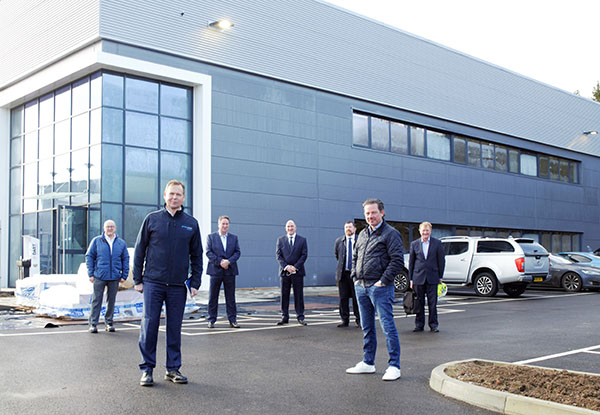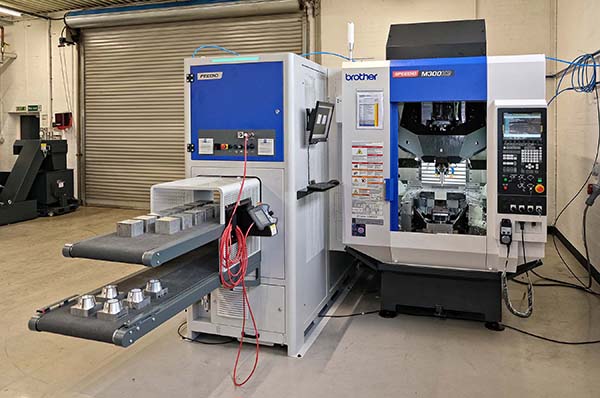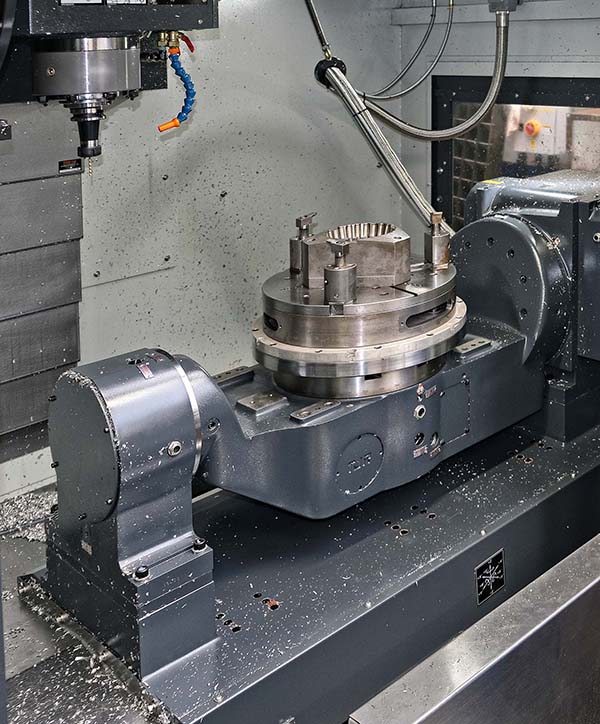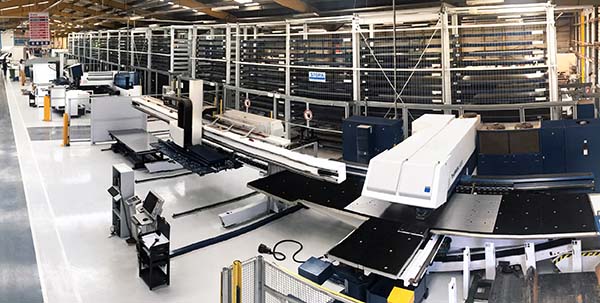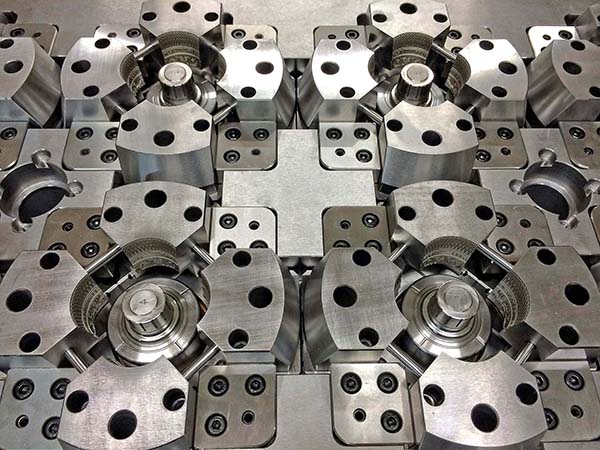Automatic nesting capability in Radan CADCAM software is achieving a sheet-metal subcontractor’s target for its raw material utilisation as part of its ‘smart factory’ vision. Alpha Manufacturing provides a full range of sheet-metal services across a number of sectors, including automotive, agricultural, healthcare, retail and electronics.

The company was established in 1989 specifically to manufacture products for its sister company, Bri-Stor Systems, which had been set up six years previously. Bri-Stor is a specialist in light commercial vehicle conversions, supplying internal racking, roof equipment, on-board power and accessories.
Bri-Stor and Alpha Manufacturing share a 35-acre site at Hixon, Staffordshire. The former’s solutions comprise consultancy and design, through to in-house manufacture, installation and livery application. Customers range from those with just a few vehicles, to hundreds, and include many well-known UK fleets.
Modular products for standard conversions include options designed for particular sectors, while bespoke solutions create kits which are fully customised around the specific needs of the customer’s fleet. For example, the Vantage range is an innovative storage system that maximises the usable space within the van. Unlike most internal racking systems, this features an asymmetric design which allows up to three times more tools or materials to be stored.
Initially Bri-Stor outsourced its sheet-metal fabrication requirements, before the decision was taken to build up its own manufacturing arm with Alpha Manufacturing.
Alpha’s marketing manager Chris Kidney says: “Originally we were dedicated to producing the van kit-out components for Bri-Stor, but fast-forward to today, and we now have a large portfolio of subcontract work, which actually outweighs our Bri-stor production.”

All components for both sides of Alpha’s business go through the dedicated sheet-metal CADCAM software, Radan, from Hexagon Manufacturing Intelligence. Kidney says it is extremely important that the parts are high precision, often needing to be within ±0.2 mm. The process begins with laser cutting and punching on Trumpf, Bystronic and Pullmax CNC machines programmed with Radan tool paths and nests, before moving through the factory for folding, fabrication, welding, powder coating and assembly.
“Our biggest challenge was meeting customer deliveries on time, which Radan overcomes with its speedy programming, and by nesting components for individual van conversion kits on the same nest,” explains Kidney.
The company’s team of three full-time programmers makes full use of Radan’s nesting functionality, analysing the true shape, material and thicknesses of all components in a batch, separating and sorting automatically, to produce manufacturable, high-utilisation nests both from full sheets and offcuts.
Says Kidney: “As there’s no limit to nesting components of different sizes and shapes onto different materials and thicknesses, this delivers substantial material savings and improves machine efficiency.”

When the nests have been finalised and are ready for cutting, two of Alpha’s machines – a Trumpf TruPunch 6000 laser-punch combination machine and a Trumpf S12 punch press – can both feed off a Stopa automated storage system which leads to even greater efficiency and time savings. The entire Stopa system now runs 62 m down the centre of the factory, and contains 230 pallets capable of storing a total of around 600 tonnes of sheet metal. This automated system manages the process of stock storage and movement between machines, with all raw sheet metal stored in the towers from where it can be retrieved at the touch of a button.
Programming manager Mark Clews takes up the story: “At the very start of the process, our design team are given a SolidWorks drawing which they break down into a DXF file. This is then imported into Radan. The programmers open the file, along with the nesting works order, which tells them exactly what requires programming. They put that into their nesting schedule; sorting it into parts of the same thickness and those of different thicknesses. The tool paths are applied at the nesting stage to maintain the quality and integrity of the parts, while optimising the cutting sequence, enabling the machine tool to attain its full potential.”

Kidney adds: “The fact that we can process the parts extremely quickly from initial design to getting them on the shop floor ready for machining, has a significant effect on delivery times to Bri-Stor and subcontract customers, which in turn, improves our profitability.
“We’re currently pushing towards automation, high efficiency and lean manufacturing,” he continues. “The focus of this plan is on utilising high-tech machine automation to realise a ‘smart factory’ vision. Today, close to £4m has been invested to secure Alpha’s position as one of the most technically advanced factories in the industry. The Stopa storage system is a major part of that, and Radan plays a vital role with quick, powerful automatic nesting and good sheet utilisation.
“We have a standard procedure that every sheet we nest must be utilised to a minimum percentage. And we achieve that, thanks to Radan.”
For further information
www.radan.com








